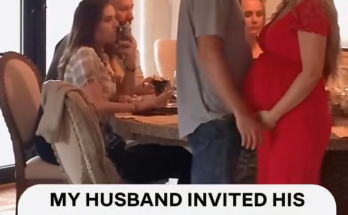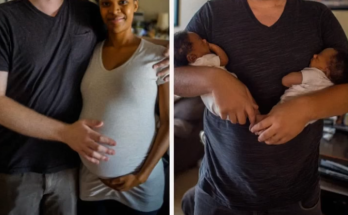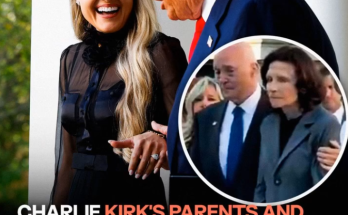
When I was 39, I met Elias. He was 52, charming, thoughtful—the kind of man who made you feel safe just by standing next to him. We married a year later, and I loved him in ways I didn’t even know love could stretch.
Then he got sick—stage 4 pancreatic cancer.
For two years, I fed him, bathed him, and held him through the pain. His kids, Maya and Jordan, sometimes visited him, but they never stayed long. Work was always demanding, and they “couldn’t handle” seeing their father like that.
But I handled it.
Every day.
Every night.
Until the last breath left his body.
After that, the day after the funeral, they showed up at our house. My house.
“We’re selling the property,” Jordan said, arms crossed like a king on a throne.
Maya stood next to him, scrolling on her phone.
“Dad left it to us. You need to be out by the end of the week.”
I thought it was a joke.
“Elias would never do that.”
But Jordan just tossed a folder onto the coffee table. A will. Signed. Notarized. The house, the bank accounts—everything—was theirs.
“You can keep your clothes, obviously,” Maya said.
My head was spinning.
“This doesn’t make sense. I was his wife. I—”
“Yeah,” Jordan interrupted. “But you weren’t our mother.”
I was nothing to them.
A week later, I stood on the sidewalk with two suitcases, watching strangers tour my home, commenting on the “charming hardwood floors” I had polished with my own hands.
Then my phone buzzed.
A message from an unknown number:
“Check the storage unit on Fremont. Locker 112. Dad wanted you to have it.”
I stared at the screen. Elias never mentioned a storage unit.
And I had no idea who sent the text.
The next morning, I took the bus to Fremont Street.
The storage facility was gray, quiet, and tucked behind a row of auto shops. I gave the front desk my ID and the locker number.
The clerk raised an eyebrow.
“You’re the fourth person to ask about that one.”
“Fourth?” I asked.
He nodded.
“But you’re the only one on the access list. Must be important.”
He handed me the key.
Unit 112.
I walked down the long hall, my footsteps echoing. The key trembled in my hand as I turned it. The door rolled up slowly.
Inside were three things:
- A wooden trunk with my name engraved on a brass plate.
- A thick envelope taped to the top.
- A painting—our wedding portrait. The original, oil-on-canvas one Elias had commissioned before his diagnosis.
I opened the envelope.
Inside was a handwritten letter from Elias.


